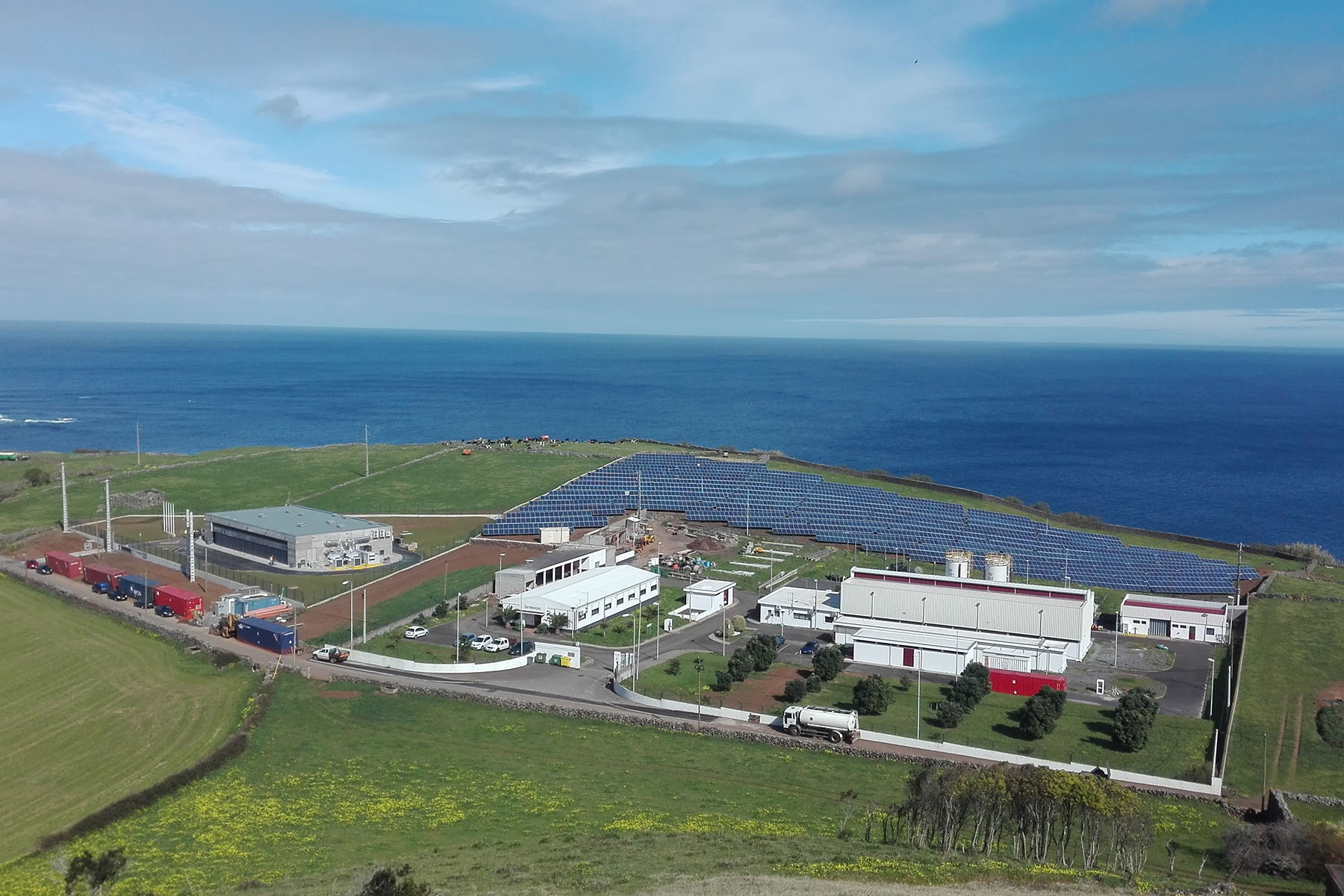Case study
Graciosa

The challenge
Graciosa is an island of 4,500 inhabitants in the Atlantic Ocean that is part of the Portuguese Azores, 1,600 km away from the Portuguese mainland. In the past, 100 % of Graciosa’s 13.6 GWh annual load was provided by diesel generators, requiring more than 3.3 million liters of diesel very year.
The solution
Leclanché installed a 7.4 MW / 3.2 MWh Lithium Titanite Oxide (LTO) battery energy storage system (BESS) for a microgrid featuring a 4.5 MW wind farm, a 1 MW solar PV plant and a diesel generator plant. The BESS compensates for the highly variable renewable energy production, provides voltage and frequency control, and has grid-forming capability if needed. Diesel generation is now used almost exclusively for backup power, decreasing overall diesel consumption by more than 65 % and resulting in annual fuel savings of € 1.9 million. Leclanché’s microgrid solution was provided on a turnkey basis and includes a 20-year lifetime performance warranty.
The rapid variations in electricity production from wind and solar PV require the BESS to be able to charge and discharge rapidly and achieve a high cycle count without experiencing too much degradation. LTO cell technology is uniquely capable in this regard, retaining 80 % of its nominal capacity after more than 20,000 cycles. Given the 20+ year power purchase agreement and the high cycle count required by this application, LTO is the only technology that both guarantees optimal performance and minimizes maintenance expenses over the lifetime of this key infrastructure asset.
Key figures
The Graciosa microgrid includes the following units:
- 4.6 MW Diesel Power Plant (3 x 600 kW, 1 x 810 kW, 2 x 1000 kW)
- 4.5 MW Wind Power Plant (5 x 900 kW)
- 1 MWp PV Power Plant
- 7.425 MW / 3.2 MWh Electrical Energy Storage System (EESS) based on Leclanché Lithium Titanate Oxide (LTO) technology
pictures credit: Graciólica
Other case studies
-
The Challenges The electrification of transportation is expanding at a fast pace and that includes the maritime sector where a growing list of countries are requiring the electrification of ferries. Fully electric ferries reduce emissions – and noise (especially important within the harbor) – as well as operational costs. Passenger ferries, which travel relatively […]
-
As known, the intermittent nature of renewable energy resources, such as wind and solar, can force electrical grids to operate in unfeasible conditions. In order to evaluate the best possible way to overcome this challenge and develop innovative grid solutions, the country founded the Swiss Competence Center of Electrical Infrastructure (SCCER-FURIES).
-
Major cities and regions, such as Toronto, Ontario, are facing the increasingly difficult challenge of generating more clean and efficient power for their growing population centers while maintaining the reliability of the grid.